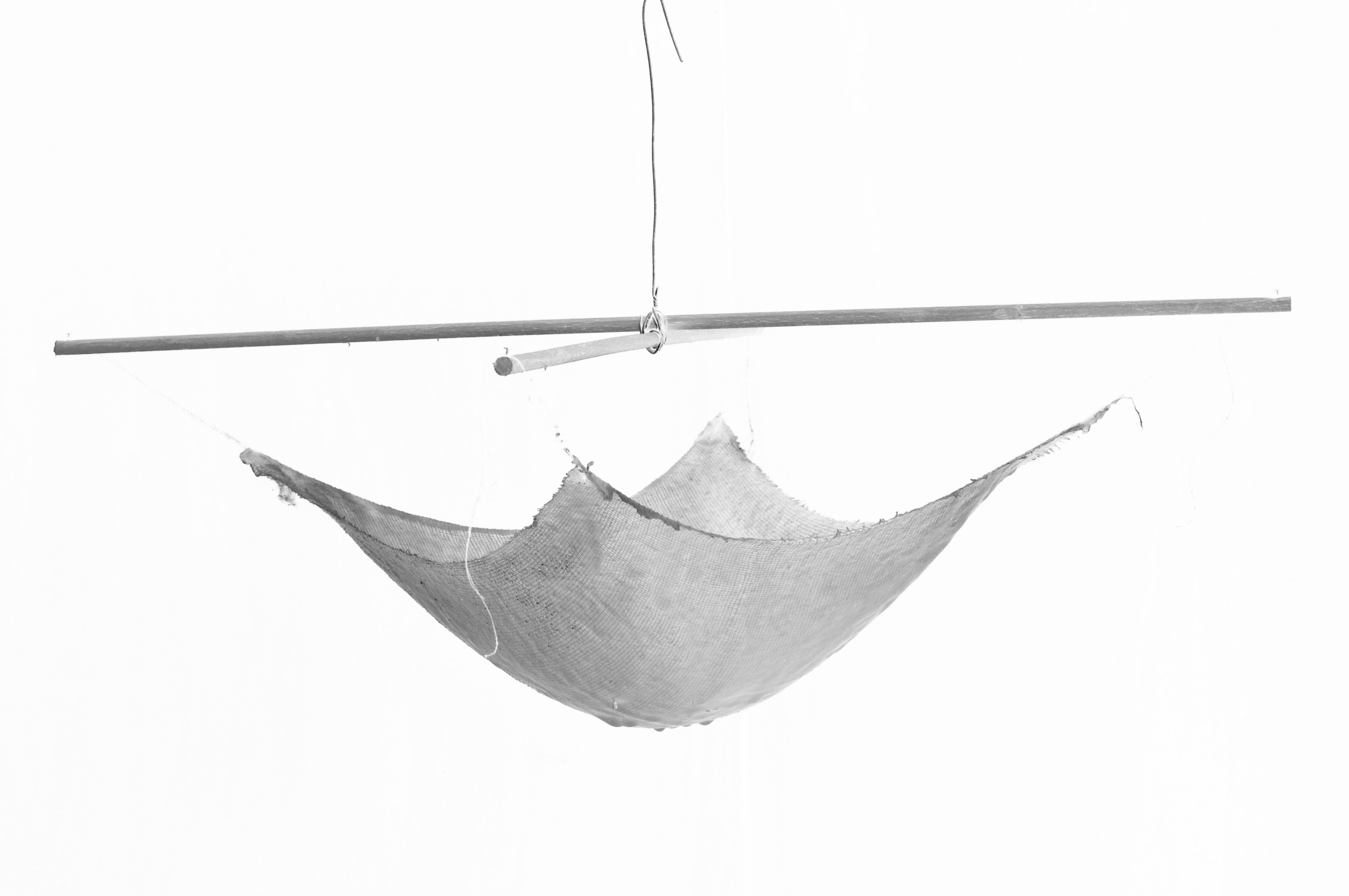|
Das Modell als Arbeitsmethode. Die experimentellen Schalenentwürfe von Heinz Isler |
G. Boller 2018 - 2022 |

Heinz Isler′s hanging model (gta Archives)
The Swiss engineer Heinz Isler (1926-2009) is considered one of the most prolific shell builders in reinforced concrete of the last
century: between 1954 and 2009 he designed and built over 1000 shells using an experimental approach based on physical models and
leading theoretically to a virtually unlimited field of possibilities in shell design. In the past forty years, his work has been
studied in a monographic way, putting the attention on his finished buildings as a showcase of his innovative experimental approach.
Focusing on his huge oeuvre of models and projects, the urgency of exploring his contribution within the history of architecture and
engineering, both nationally and internationally, is evident. The focus is on his innovative design and construction process, based
on
physical models, rather than on finished buildings. The model gains more importance as an autonomous research topic, unfolding a
network
of relations with different professionals, events and processes. The buildings themselves can be thus considered as full-scale models
in
the way Isler used them to gain knowledge for future projects. The changed perspective allows for more profound insights into his
methodology, establishing a permanent dialogue between the designer and his small-scale and full-scale models. Consequently, this
approach identifies new meanings in the design process, and makes visible design aspects for the contemporary practice.
This research is part of a larger research project, funded by the Swiss National Science Foundation (SNSF) called Experimental Design
in
the Post-War Period. Heinz Islerís (1926-2009) Contribution in the Perspective of the History of Engineering and Culture. It is
reading
Islerís work from an interdisciplinary point of view, involving the chairs of Prof. Laurent Stalder and Prof. Joseph Schwartz.
last modified 15.10.2019